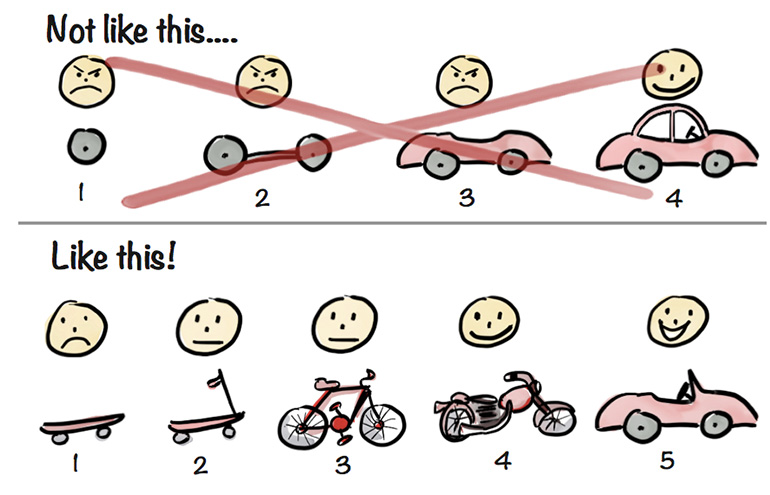MVP (Minimum Viable Product) and its application in web and mobile app development
A Minimum Viable Product (MVP) is the smallest thing you can build that delivers customer value (and as a bonus captures some of that value back). The term was coined and defined by Frank Robinson, and popularized by Steve Blank, and Eric Ries. Over time it got simplified to: “the smallest thing you can build that lets you quickly make it around the build/measure/learn loop”.
In the tech world a MVP web or mobile application has just those core features sufficient to deploy the app, and no more. Developers typically deploy the product to a subset of possible customers—such as early adopters thought to be more forgiving, more likely to give feedback, and able to grasp a applications vision from an early prototype or marketing information.
MVP enables entrepreneurs to test a product hypothesis with minimal resources. It accelerates learning and reduces wasted engineering hours. It also facilitates a early launch of the application and enables an incremental addition of new features and functionalities. Take Twitter as an example. It didn’t start out with a “retweet” button, but the team at Twitter noticed that users were manually copying Tweets and prefixing them with “RT,” so they built the feature into their product.
The term MVP in itself is quite subjective. Where do you stop? How far should you take your product? Which features are essential?
No one knows all of those answers, especially for a business that isn’t their own (like when an agency builds your app), but here are a few guidelines that allow the MVP approach to succeed.
- The product or app has to look and feel finished.
- This may go without saying, but the core functionality of the product or app needs to work.
- Anything that doesn’t absolutely have to be automated can start as a manual process.
- Implementing change needs to be as simple as possible, with few barriers.
- Owners and other stakeholders need to be open-minded.
The takeaway really is that a lot of entrepreneurs should rethink what it means to launch a product, an app or a business. The traditional methods of product launches are suffering as products are coming to market faster than ever. The “Big Reveal” isn’t as smart a move as it used to be, especially if your competitor launches their product while you’re fine-tuning yours for its reveal.


